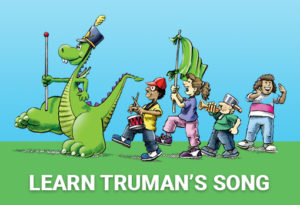Come Out and Play – July 2020
Improvisation
It is a style of performance that was made popular by David Shepherd and Paul Sills in Chicago in 1955. It is a type of theater, but it is unique because there are no scripts. Instead, actors go out on stage and spontaneously make up the scenes they perform. There are two types of improv: long form and short form. In long form, the actors create scenes that can last over 20 minutes. Short form is usually more like short games that are over in just a couple minutes. Here are a few short form improv games that anyone can play.
AND THEN is a short form improv game made for a group of people.
• Everyone sits together in a circle, and someone starts a story.
• After a few sentences, the speaker says, “and then.”
• Then the story moves over to the next person who continues telling it.
• The story goes around in a circle until it is over.
• The idea is to create a story together that makes sense.
• No one should tell more than a few sentences of the story at a time.
Another game is called EMOTIONAL MIRROR.
• This game must be played in pairs.
• The two players should face each other and talk in gibberish.
• Gibberish is a made-up language that means nothing but sounds like language.
• One partner should speak gibberish and try to display a specific emotion.
• The other partner should copy this emotion in their own gibberish.
• After a few minutes, the partner should switch emotions.
A third improv game is FREEZE & JUSTIFY
• This is also played by groups.
• Two actors step up and start improvising a scene.
• The rest of the group stands around them, and at any moment, someone can shout, “Freeze!”
• The actors must freeze, and who ever stopped the scene taps an actor on the shoulder, and they switch places.
• After the switch is complete, a new scene must start.
• The goal is for the change between scenes to be smooth.
There is no right or wrong scene in improv. For all these games, the goal is just to have fun and work together as a team.
For more information, visit the following sites:
http://www.encyclopedia.chicagohistory.org/pages/631.html
http://www.childdrama.com/warmups.html
http://www.kidactivities.net/post/improv-games-and-exercises.aspx





